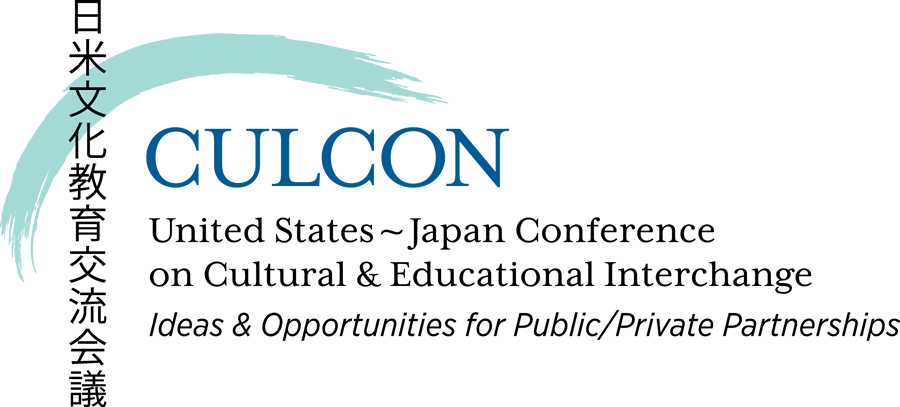
Report on Joint Ad Hoc Steering Committee on Intellectual and People-to-People Exchanges; Provisional Japanese translation【PDF:233KB】![]() ; English【PDF:75KB】
; English【PDF:75KB】![]()
excerpt from the CULCON XXVI Joint Statement Provisional Japanese translation【PDF:427KB】![]() , English【PDF:202KB】
, English【PDF:202KB】![]()
The ASC reported to the plenary session that renewing an existing intellectual human network between Japan and the United States and nurturing a next generation of leaders is necessary for the future bilateral success, and is of highest priority, while noting the following key factors:
First, the U.S.-Japan relationship has benefitted from a substantial and talented group of public intellectuals including researchers, business professionals and policymakers who are well-versed in U.S.-Japan relations and are deeply immersed in a range of challenges faced by each country. The tireless efforts made by these individuals who have managed U.S.-Japan relations for the past 70 years have successfully deepened these bilateral ties. However, the vast majority of these individuals are nearing retirement, and others who have contributed to building this partnership are passing from the scene; the strategic core of U.S.-Japan relations based on intellectual dialogue and exchange is at risk of erosion.
Second, there is inadequate funding to nurture bilateral intellectual exchange. During the past fifteen years, funding from governments and government backed institutions such as the Japan Foundation, the Center for Global Partnership, the Fulbright Commission and the Japan-U.S. Friendship Commission has been shrinking. Concurrently, funding from U.S. philanthropic organizations responsible for providing the necessary infrastructure for bilateral exchanges has disappeared. There must be renewed efforts to restore public funding in both countries and to reengage U.S. philanthropic institutions to support U.S.-Japan intellectual exchange.
Next, in addition to traditional challenges, today’s U.S.-Japan relationship faces vastly different challenges than those faced during the Cold War and its aftermath. Today’s bilateral relationship is enmeshed in a far more complex regional and international dynamic resulting in new challenges that transcend borders. Also, new issues such as pandemics, cyber-crime and outer space require new levels of expertise.
The Panels agreed that the issue of generational transition is most critical for the U.S.-Japan relationship, and a new task force to examine the issues surrounding fostering of “The Next Generation of Leadership in the US Japan Relationship” should be established. The task force will be charged to assess, among other things, the current state of U.S.-Japan intellectual exchanges with specific focus on generational transition; identify any clear gaps that need to be addressed and to make concrete proposals on measures, including funding. The goal is to ensure high quality and a sufficient quantity of future leaders to strengthen and sustain our important bilateral relationship. The CULCON agreed that the new Task Force produce its final report by fall, 2017.
The Panels also agreed that fostering the next generation could take numerous forms, but particularly promising areas include the following:
The Panels also noted it would be worthwhile to explore the possibility of creating a Japanese version of the German Marshall Fund in the United States. As a symbol of gratitude for the generosity that Japan received from the United States in the aftermath of the Great East Japan Earthquake and tsunami, the fund would sustain efforts to establish a visionary intellectual apparatus to nurture successive generations of potential leaders, as a return to the generosity.
ASC will analyze current conditions in major fields of exchange to further develop and expand intellectual exchange and people-to-people exchange between Japan and the US, while focusing on CULCON’s role based on a medium- to long-term and diplomatic perspective, and report to the 27th joint meeting held in June 2016 on the priority matters that should be addressed in the future.
During a CULCON Executive Session held on September 27, 2015, the Japan and US agreed to establish ASC.